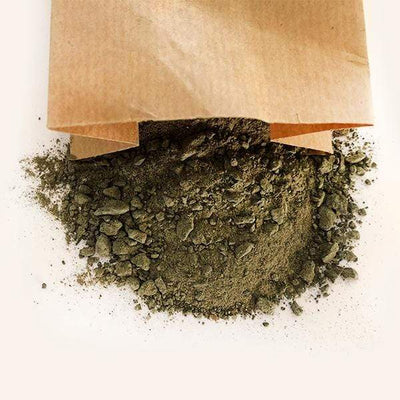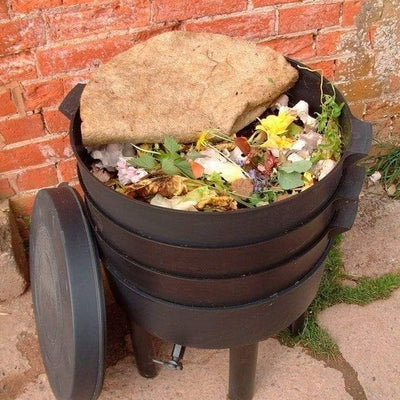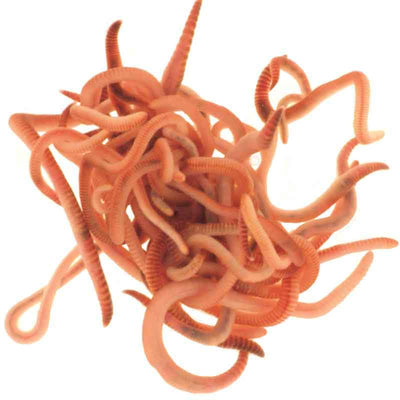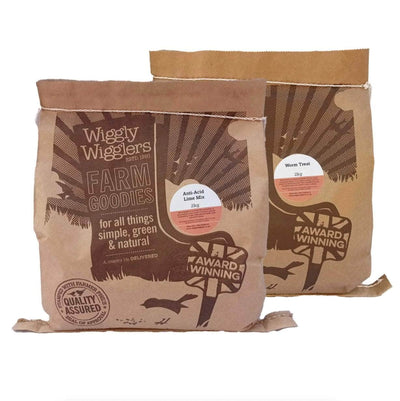Hopefully, we've sold you on the total awesomeness that is compost, and now it's time to get into action.
First, you're going to need to make your own compost. We recommend composting with Subpod — our in-garden worm farm and compost system. It's simple, efficient and sits directly in your garden bed! Here's how to make compost at home from kitchen scraps.
Once you've got compost ready, here are our favourite ways to use it in the garden:
1. Prepare a garden bed with it
If you're getting ready to till your gardens' soil after winter or start a new garden bed, that's a perfect time to add compost. Add a good pile of compost in with your soil, and mix it in the bed thoroughly. It's almost impossible to overdose on compost, so be generous!
Once it's all mixed through, leave it to sit for a week or so and then get planting. You'll be shocked at the results.
2. Use it as mulch
Yep, that's right. You can use compost as a substitute for mulch! Just spread it around your plants, applying it up to 40mm deep if you like. We suggest spot-mulching at the base of your plants for an extra kick of nutrients because to cover a whole garden bed, you'll need a lot of compost.
3. Make a liquid compost fertiliser
You can make a simple liquid fertiliser from compost or worm castings quite easily! Add one part compost to three parts water, plop in a dollop of molasses to feed the micro-organisms, give it a good stir, and then leave it for 3 - 5 days. Stir the mixture a few times a day for best results.
Once it's had time to sit, feed the liquid to plants as a gentle, nourishing drink of goodness!
4. Turn it into a seedling or potting mix
Compost can be combined with other ingredients to make excellent homemade potting mixes. Watch our video tutorial!
5. Restore life to your dried-out soil
Digging compost into extremely dry soil helps to get it soaking up water again. When soil dries out, every grain becomes coated with a waxy substance that forms a 'water resistant' barrier. But compost is full of tiny micro-organisms that can break down that waxy coating!
Break up your dry soil well with a mattock or a spade, add in a mountain of compost and mix it in evenly through the bed. You can optionally add a wetting agent from a hardware store to boost the process. Then, soak the soil for 20 minutes the first time, and give it deep, regular soaks as often as possible.
There's a whole world of uses for compost in the garden. These are just some of them, but we hope it's enough to get you excited!
Since composting is a fantastic way to divert waste from landfills, it really is a no-brainer that this secret soil weapon should be an essential staple in every garden.







